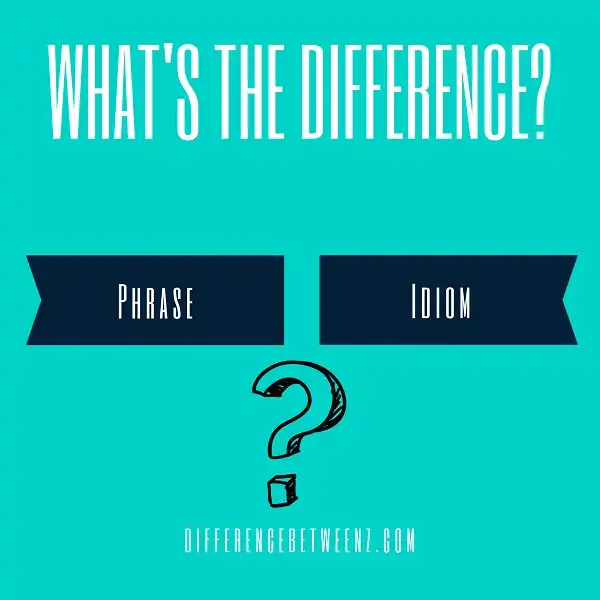When learning a language, one of the first things you will learn are phrases. Phrases are groups of words that have a specific meaning and can be used in different situation. Idioms, on the other hand, are expressions that have a figurative meaning and cannot be taken literally. While both phrases and idioms are important to learn, they can be difficult to tell apart. In this blog post, we will explore the difference between phrases and idioms and provide some examples. We hope this information will help you better understand these terms and their uses.
What is Phrase?
- Phrases are small groups of words that function together as a unit within a sentence. For example, the phrase “out of sight, out of mind” consists of three words that work together to create a specific meaning.
- Phrases are different from clauses because they do not contain both a subject and a verb. Instead, phrases typically contain just a verb or just a noun. In some cases, a phrase might contain both a verb and a noun, but it will not be able to function as an independent clause.
- Phrases can be classified into different types, depending on their function within a sentence. For example, there are infinitive phrases, participial phrases, prepositional phrases, and more. Phrases play an important role in helping to create meaning in writing, so it is worth taking the time to understand how they work.
What is Idiom?
Idiom is an expression whose meaning cannot be inferred from the literal definitions of the words that make it up. Idioms are often employed in everyday speech to convey a more vivid meaning, and are often particular to a certain culture or group of people. For example, the idiom “it’s raining cats and dogs” is used to describe heavy rainfall, and is not meant to be taken literally. Idioms can be tricky for language learners, as they often do not make sense when translated directly. However, with a little practice, they can be a great way to add color to your speech.
Difference between Phrase and Idiom
A phrase is a group of two or more words that express an idea, but it is not a complete sentence. An idiom is a phrase that has a meaning that cannot be understood from the meanings of the individual words. Phrases can be both idiomatic and literal.
- For example, the phrase “I’m pulling your leg” is an idiom meaning “I’m joking with you.” The phrase “a fragrant flower” is literal because you can understand its meaning by looking up the meaning of each word. Literal phrases can be either idiomatic or non-idiomatic.
- For example, the phrase “All work and no play makes Jack a dull boy” is an idiom meaning “If you work all the time and never relax, you will become boring.” The phrase “the early bird catches the worm” is non-idiomatic because its meaning can be understood by looking up the meaning of each word.
- Phrases are often used in everyday speech and writing, and they can make the language more interesting. Idioms are especially common in English, and they often involve animals or body parts. Learn as many phrases and idioms as you can to improve your English fluency!
Conclusion
Phrases and idioms are two of the most commonly used language tools. However, they are often confused with each other. In this blog post, we’ve clarified the difference between phrases and idioms and given you some examples to help you understand how to use them correctly in your own writing. Now that you know the difference, put what you’ve learned into practice!


